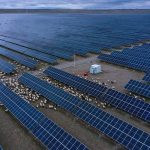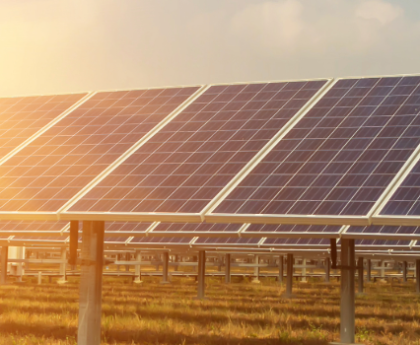The independent panel voted unanimously to continue an investigation into manufacturers in Malaysia, Thailand, Cambodia and Vietnam for selling solar cells into the U.S. market below cost in attempt to stifle domestic manufacturing. That sets the stage for the Commerce Department to apply costly tariffs on the majority of solar cell imports from those countries, following separate tariffs that went into effect Thursday on manufacturers from those same four countries found to be helping circumvent tariffs on Chinese-made solar cells.
But the move to increase tariffs has divided the U.S. solar industry. Companies that assemble solar panels in the U.S. using foreign-made cells say there aren’t enough domestic cell plants to supply what is a burgeoning industry in places like Houston and Dallas. At the same time the boom in the construction of utility-scale solar farms in places like West Texas is predicated in large part on the availability of low-cost solar cells from Asia.
“It injects a level of uncertainty when you have a negotiated agreement on (electricity) price and then all of a sudden you have an increase in the cost of solar cells,” said Jeff Clark, president of Austin-based Advanced Power Alliance, which represents solar and wind developers. “It can be disruptive.”
The case at the ITC was brought in April by a small group of manufacturers starting to produce solar cells domestically, led by South Korea-based Hanwha Qcells and First Solar in Arizona, claiming the flood of cheap solar cells from abroad was stifling their ability to stay in business.
“This manufacturing renaissance is being threatened by China’s industrial policy, which has led to massive subsidization in China and Southeast Asia. This is resulting in high volumes of dumping on global markets, including the U.S.” Tim Brightbill, an attorney for the American Alliance for Solar Manufacturing Trade Committee, said in a statement at the time.
The companies are calling for tariffs on solar cells from Vietnam, Malaysia, Thailand and Cambodia ranging from 70% to 271%, though the Commerce Department can choose whatever tariff it sees fit.
The petition is opposed by many in the U.S. solar sector, with the trade groups Solar Energy Association and the American Clean Power Association warning earlier this year that it was a “potential threat to the build-out of a domestic solar supply chain.”
At an ITC hearing last month, Canadian Solar, which has begun production at a $250 million solar panel plant outside Dallas, accused Hanwha of trying to eliminate competition for the solar cell plant it’s building in Georgia.
“The burgeoning domestic industry needs solar cells from Southeast Asia in order to support its U.S. manufacturing operations,” said Jonathan Stoel, the attorney representing Canadian Solar. “These operations are employing thousands of Americans and satisfying the needs of American customers — including project developers — who are thirsty for more solar power.”
This post was originally published on 3rd party site mentioned in the title of this site




